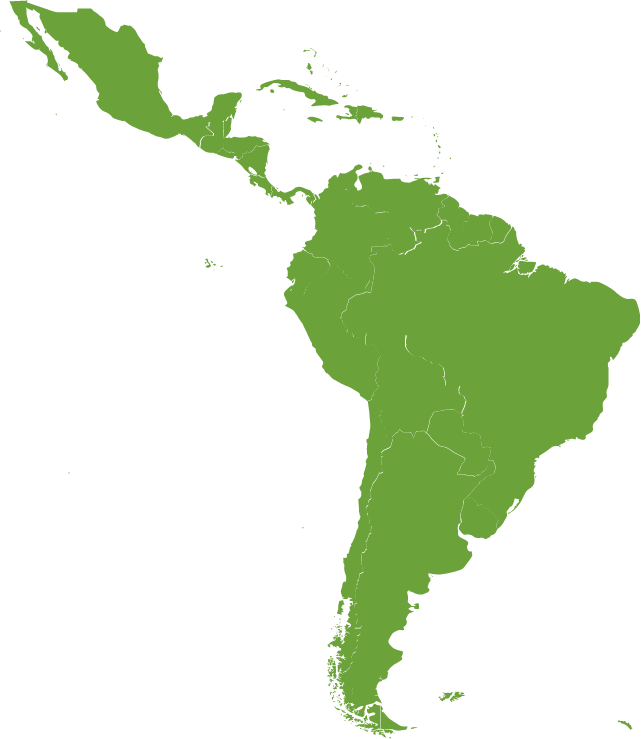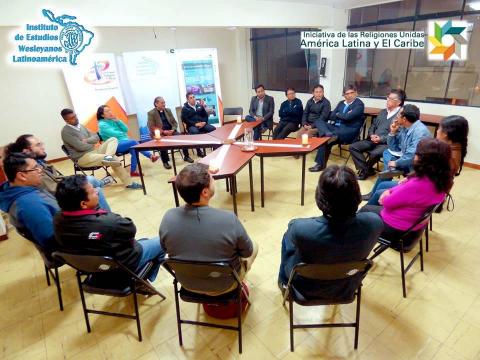At the center of this Circular Economy, assumed as a Virtuous Circle, is given by the process of Training Human Talents, thus rescuing Humanism as an essential premise of the Philosophy of AREDAP.
This training of Human Talents, not as mere Human Resource as promulgated by the capitalist philosophy, implies a comprehensive training process, with emphasis on training in the empowerment of adolescents and young people with technical skills for agricultural production both for the agricultural field as well as for the sub-urban areas and the Social Territories. The latter are also known as Human Settlements, which constitute areas - whether in the semi-urban or rural sector - of relocation of groups of generally insolvent families hardly engaged in informal jobs, precisely because of their lack of training in trades that allow them to obtain income through a decent work.
For AREDAP, the process of training human talents is not only restricted to the field of Formal Education, in the initial, middle and higher level schooling cycles, but also through Non-Formal Education, which generally enables them to exercise the professions without being linked to the cycles and levels of the Educational System. In the same way, we are convinced that this process of formation of human talents even occurs through Reflex Education mechanisms, that is, that which occurs on a daily basis in the life of every person, young or adult, when interacting with others and with the media and social networks. Thus, the fields of training of human talents have multiple scenarios, seldom approached in all their dimension and complexity.
In this context, AREDAP from different management areas has promoted the training of human talents for the productive sector of agriculture, understood as that capable of housing in the peasant family garden the production and management of:
a) Agricultural, horticultural and fruit crops, whether for self-consumption and / or income;
b) Livestock, preferably of animal species feasible for management in the small or medium family farm;
c) Forest species, especially with species for the promotion of the agro-silvo-forestry system and the production of firewood.
d) Administration of the production, post-harvest and self-consumption and / or commercialization of production processes.
All the aforementioned, the AREDAP has directed and specified through various initiatives, among which are mentioned:
1) Training process for Technical-teachers, who lead the technical training processes for adolescents and young people within the National Educational System, through Formal Education, in a Semi-Presential and Distance System. As a result of this process, the following are mentioned:
a) The Semi-Face-to-Face Faculty in Agrarian Education, lasting two years, which has graduated and certified more than 450 agricultural technicians, of medium and university level from all over the country, which has allowed them to access and succeed in competitions opposition of the Ministry of Education and Sciences - MEC, joining as salaried teachers with items of the MEC.
b) The Bachelor's Degree in Agricultural Management, lasting 4 years, in a totally remote modality, developed and to be certified from a private University, with more than 60 (sixty) students in the process of preparing the Final Degree Project (Thesis).
2) The promotion and strengthening of the Agricultural Technical Education System in Paraguay, from a group of only about 40 institutions that developed it towards 2007 to more than 700 at its peak (towards the year 2011) and with more than 400 in the present. This to the educational institutions dependent or recognized by the MEC at two levels of the National Educational System:
2.1) Basic School Education Level - EEB, with the Agricultural Professional Initiation Modality - IPA, with students from the 3rd cycle of the EEB (7th to 9th grades);
2.2) Medium Level - SL, with modalities of the Technical Baccalaureate, such as Agricultural (BTA), Agromechanical (BTAM) and Environmental Sciences (BTCA), respectively.
3) Various processes of Technical Training from the field of Non-Formal Education, among which we can mention:
3.1) Training of Professionals in specific areas of immediate incorporation to the productive sector, such as:
a) Beekeepers, through the Strategic Alliance of AREDAP with a military unit, where a total of 70 Beekeepers were trained.
b) Training of Agromechanical Technicians, and Agricultural Mechanization Technicians, from the Agromechanical Schools, with immediate labor insertion, and an average of 40 graduates per year.
4) Regarding Reflective (or Informal) Education, one can mention initiatives from AREDAP to promote it, such as promotional spaces from the visit of its Directors to the same farm with interviews and filming of the experience told by the protagonists themselves , to the dissemination through radio programs, television spaces, in newspapers and, very especially, from social networks, from the Facebook page, WhatsApp groups and emails, of the initiatives, plans, programs and related projects to the promotion of the most deprived and vulnerable sectors, both in the urban, semi-urban and rural sectors, in line with building active and committed citizenship.
In this way, AREDAP aims to achieve the most precious thing as a dynamic element of this virtuous circle: the Training of Human Talents, in the conviction that, by promoting the training of Human Talents, it will be more accessible to face Challenges, as with, among others:
- Achieve adhesion of Authorities, both at the National, Departmental and District levels. Example: Experience of 3 IPA Schools of the Yaguarón district, included in the Project “TOPA ÑEMBYAHÝI” (Let hunger end), a conjunction of efforts between the Municipality, the Ministries of Education and Sciences, and of Agriculture and Livestock and a University Private, already in the process of consolidation with periodic Community Fairs, where students and parents of IPA students participate. Zero Hunger archives - Municipality of Yaguarón
- http://www.yaguaron.gov.py/category/hambre-cero/
- Guide the process of Associativism (School Cooperatives and Producers of Peasant Family Agriculture), to have better results as a result of effort and teamwork.
- CIT. By continuing with agroforestry production, hydroponics, aquaponics and georeferencing of agricultural educational institutions and projects will be encouraged. In addition to the recycling of water, and other materials.
- share good practices in agricultural education with all stakeholders.

